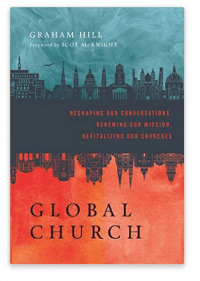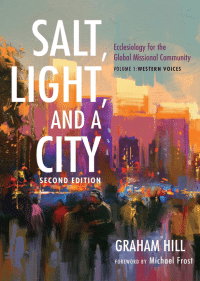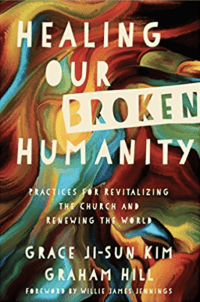Women are the heartbeat of living faith
Women are at the center of Christian faith, discipleship, worship, ministry, theology, community, and mission.
Stephen Bevans describes how the “average Christian” today is female, black, and lives in a Brazilian favela or an African village.
Globally, Christian women are more spiritually active than men, and also more persecuted.
Asked recently what it would mean for Christian women if Hillary Clinton becomes President, Diana Butler Bass responded this way:
I hope that we will finally get beyond the idea of ‘Christian women leaders’ being some special subset of Christian community.
Women are the majority of Christians around the world – we are the heartbeat of living faith. The media spends too much time covering male leaders – and then a small subset of authoritarian conservative men – as if they are the voice of the church. They are not. Women are. All the women. The women who preach, the women who write theology, the women who pray, the women who serve, those who hold the hand of the dying. Those who care for children, those who feed the hungry, those who embrace the poor and visit prisoners. Those who weep and mourn for the pain they’ve suffered. Those who find that God’s love is more beautiful and trustworthy than those who abused them.
That’s the church – a church that knows no facile forgiveness or partisan spin. But the church that understands grace, peacemaking, and mercy. And that church is rarely heard in public because it is too busy living its faith. ~ Diana Butler Bass
[bctt tweet=”Women are, and always have been, the heartbeat of living faith.” username=”GrahamJGHill”]
I’ve been reading Reta Halteman Finger lately. She helped me see that nothing shaped the theology, community, and mission of the early church more than the people at its heart. For the early church, these people were women, the poor, the sick, the outcast, the powerless, and the marginalized.
These groups formed the nucleus of the ancient church. They understand themselves as following after the example and mission of Christ.
Men had an important role to play, of course. Men have an important role to play in the church today, as women and men and children—of all ethnicities and languages and income and social classes—come together as a new family and a new humanity in Christ. But for thousands of years, men have had all the power, recognition, opportunities, and voice. We’ve neglected the people who are the heartbeat of living faith.
Women, the poor, the sick, the outcast, the powerless, and the marginalized weren’t just a part of the early church community. And they didn’t just heavily influence the early church community. They were at the heart of the community.
Women, the poor, and the socially marginalized shaped the theology, fellowship, service, discipleship, and mission of the early church, in immense and incalculable ways.
Jesus reinvents the family. He creates an intentional community. The early church was a community of open homes, economic sharing, communal meals, and spiritual family.
Within this extended family, people met each other’s economic and social needs. These churches abolished acquisition of wealth and honor by patronage. They met daily in homes and around meals. They prized loyalty, love, faith, welcome, hospitality, hope, diversity, equality, truth-telling, and grace.
And Jesus chose women to be at the heart of this community. Their love and hospitality and passion shaped the early church.
The same is true today, all over the globe. Women are the heartbeat of living faith. They are the voice and hands and heart of the church.
Jesus reimagines family and household and male/female relations. This has profound implications for the church. It has massive consequences for our theologies, gender relations, communal sharing, and mission in the world.
It allowed women all over the church to rise up, use their gifts, and show leadership.
Phoebe, for instance, was an extraordinary businessperson, theologian, and diplomat. The hospitable women of Acts 2, 4, and 6 are sometimes hidden in the text. But they’re the backbone of the church and its mission.
These women showed that faith isn’t merely a private or religious affair. These women’s actions reveal the power of the gospel to shape the social, political, sexual, economic, ethical, and other aspects of our lives.
Women were crucial to shaping the early church, and turning it into a family on mission.
And women continue to do the same today.
It shouldn’t surprise us that women are the heartbeat of living faith. As Dorothy Sayers once observed, women have met a Man like no other. And they choose to follow him, and shape a church that reflects his welcome, diversity, equality, and kinship.
Perhaps it is no wonder that the women were first at the Cradle and last at the Cross.
They had never known a man like this Man – there never has been such another. A prophet and teacher who never nagged at them, never flattered or coaxed or patronized; who never made arch jokes about them, never treated them either as “The women, God help us!” or “The ladies, God bless them!”; who rebuked without querulousness and praised without condescension; who took their questions and arguments seriously; who never mapped out their sphere for them, never urged them to be feminine or jeered at them for being female; who had no axe to grind and no uneasy male dignity to defend; who took them as he found them and was completely unself-conscious.
There is no act, no sermon, no parable in the whole Gospel that borrows its pungency from female perversity; nobody could possibly guess from the words and deeds of Jesus that there was anything “funny” about woman’s nature. ~ Dorothy Sayers
Jesus honored and welcomed women. He invited them to join with him in forming a new spiritual family. He invited them to carry his message and vision, embodying his love and welcome and peacemaking. He invited them to join fully with him in his mission.
And, so, in the ancient and modern church, locally and globally, women are the heartbeat of living faith.
See also
An apology to victims of domestic violence in the church
6 ways to empower and release more female leaders
#MeToo – Stop asking women & girls to fix the problem! Men, #MeToo is on us
9 ways to amplify the voices & honor the gifts of women
Churches and their leaders must confront domestic violence
Women are the heartbeat of living faith
It’s Time to Stop Organizing All White Male Panels and Conferences
7 inspiring women: A 7-part series on inspiring female Christian leaders and thinkers
Graham Hill
Dr Graham Hill is the Founding Director of The GlobalChurch Project – www.theglobalchurchproject.com. He’s the author of “GlobalChurch: Reshaping Our Conversations, Renewing Our Mission, Revitalizing Our Churches” (IVP, 2016), and 3 other books.
© 2016 All rights reserved.
Copying and republishing this article on other Web sites, or in any other place, without written permission is prohibited.
Want to get your hands on more, see our subscriptions
Books
Don’t forget to buy Graham Hill’s books:
- Global Church
- Salt, Light, and a City (second edition)
- Healing Our Broken Humanity



Comments: We’d love to hear your comments and reflections on this blog post!





